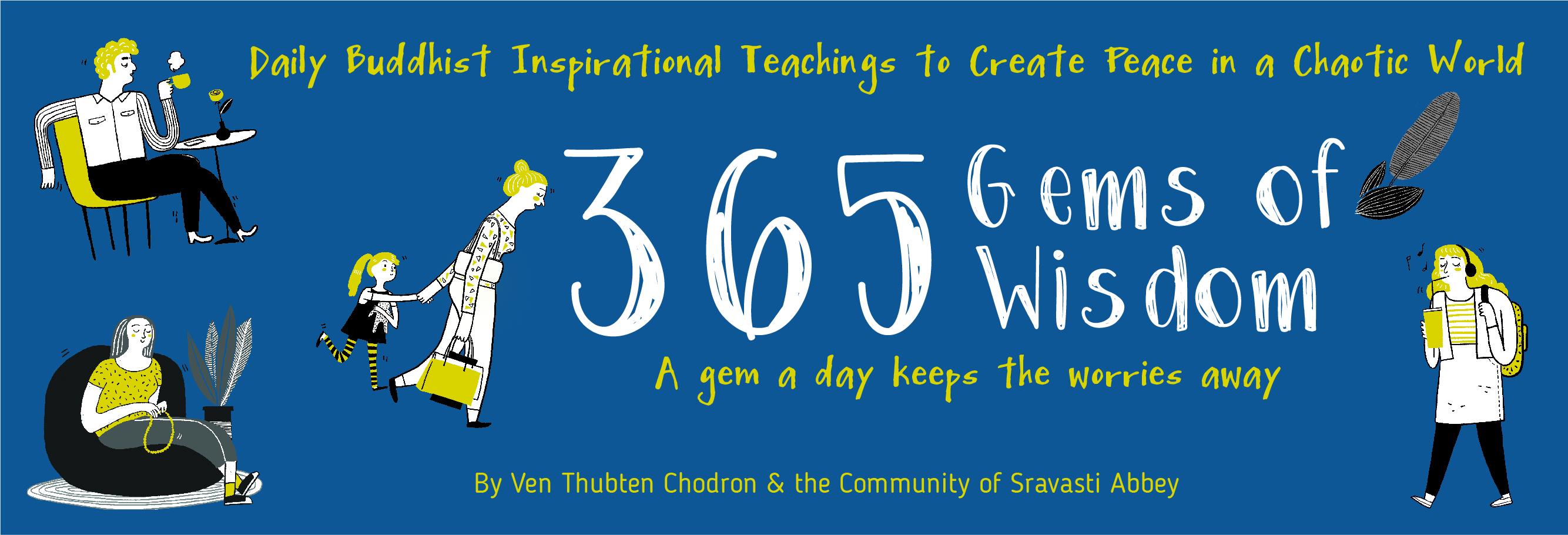July 10 : Having a Kind Heart
The importance of having a kind heart is something His Holiness would start with, talk about in the middle, and end with. He made precious human life, ethics, and everything else fit around the theme of having a kind heart, because one of His Holiness’ mottos is: “My religion is kindness”.
I think we should look at this in the way His Holiness the Dalai Lama does. If we have a kind heart, then our ethical conduct flows very naturally from that. If you have a kind heart, you will not harm others, so you keep good ethical discipline. If you have a kind heart, you want to benefit them, so you do all the actions that create positive energy. If you have a kind heart, you do not want to harm yourself too, so you do not do self-sabotaging things. The whole thing revolves around having a kind heart towards ourselves as well as everybody else. In our culture, we hear about a kind heart, but we always hear about it in reference to being kind to others. As a culture, we tend to be very hard on ourselves. We have somehow the wrong idea that to be kind to others, we have to be hard on ourselves. In order to be compassionate, we have to suffer. Do these two ideas really go together? Is it wrong or selfish to have any bit of positive feelings for ourselves? This idea is embedded in our culture. But it is not found in Buddhism at all.
In fact, it is seen more as a win-win situation in Buddhism because if you are kind to yourself, it makes it easier to be kind to others and vice versa. You practise both together. If there is happiness, we look at the happiness of everybody, not just the happiness of others where oneself is neglected. Likewise for love and compassion, people think, “If there is love and compassion for you, then I cannot have it for myself because that is selfish. If I have compassion for myself, then I am just going to have to hurt you.” It is a divisive way of thinking, isn’t it? Making it seem like ourselves and others are diametrically opposed, and that if one party gets something the other party loses. In Buddhism, things are not viewed this way.
We need to work on cutting down these rigid ideas of us and them, and all the competition, jealousy and arrogance that come out of that. It should be based on seeing all of us as alike in wanting happiness and not wanting suffering.
If we say, “Have a kind heart,” it should go towards everybody, and “everybody” includes us. It is not only us, but it also includes the rest of the world. As His Holiness reminds us, we believe in democracy, so there is us on one side and other sentient beings on the other; and if there is an issue and we have to vote on whose interest is more important — mine or everybody else’s — then, believing in a democracy where the majority prevails, we should take care of others, because there are more of others than of ourselves. This does not mean that we neglect and deprecate ourselves. It just means that we should open our eyes and see there is the rest of the world out there. It is not all about me.
“365 Gems of Wisdom” e-book is out now!

